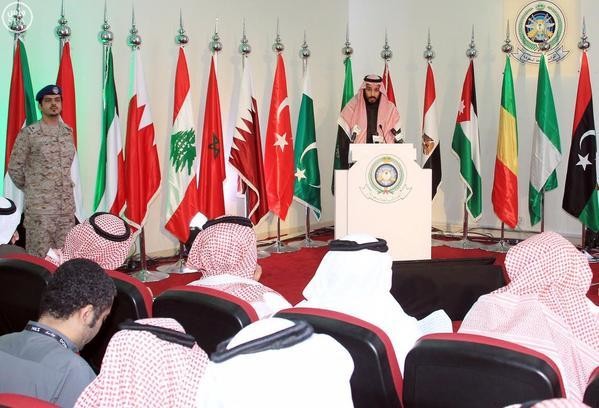RIYADH: Justice Minister Waleed Al-Samaani has welcomed the newly formed 34-nation anti-terrorism alliance and said it demonstrated the determination of Muslim countries to unite and fight terror in all its forms.
Speaking to the press, the minister said these terrorist groups have been allowed to grow and flourish because of support they received from various countries directly or indirectly.
These groups were targeting several Muslim countries, including Saudi Arabia, and by doing so were tarnishing Islam, which teaches that believers should behave moderately and respect their neighbors, he said.
Islam's leading seat of learning, Al-Azhar, urged all Muslim countries to join the coalition to fight "terrorism" in the Islamic world.
The Cairo-based institution hailed the formation of the alliance as "historic", and said it hoped it would defeat the "evils of terrorism".
"This was an urgent demand of the people of Islamic countries who have suffered more than others from this black terrorism," Al-Ahzar said in a statement.
"Al-Azhar calls on all Islamic countries to join this coalition to counter terrorism... that has committed horrible crimes indiscriminately."
In Cairo, Egypt’s Foreign Ministry spokesman, Ahmed Abu Zaid, said that his country has supported the alliance because it has been formed by Arab and Muslim countries and is aimed at fighting terrorist groups.
In Istanbul, Turkey’s Prime Minister Ahmed Davutoglu said the unified stance taken by Muslim countries represents the strongest response to those who want to link terrorism with Islam, and that the country would provide whatever assistance is needed for the fight.
Military analyst, Ibrahim Al-Marai, told a local newspaper here that many countries have decided to join the alliance because of the success of the coalition forces in Yemen.
He said it was clear the alliance would operate on military and other fronts, be wary of violating the sovereignty of other countries, or be seen as an aggressor. The aim was to achieve global security and stability in partnership with others, he said.
Daesh, which has launched attacks on several Western targets in recent months, has issued warnings to Gulf states and have mounted a series of attacks on mosques and security forces in Kuwait and Saudi Arabia, a report in an online publication said Tuesday.
— With input from Mohammed Rasooldeen and Sharif Taha
Al-Azhar urges all Muslim nations to join alliance
Al-Azhar urges all Muslim nations to join alliance











